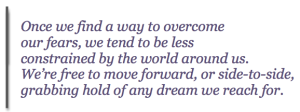 Kristen Nicole got her professional “tech” start with 606tech, a Chicago-based blog focused on the local tech scene. She became a full-time blogger when hired as the first employee at Mashable, a leading Internet news blog. After two years as Mashable’s lead writer and field editor, a brief stint in San Francisco and a short time contributing to VentureBeat and AllFacebook, Kristen joined SiliconANGLE with fellow, former Mashable-ite, Mark “Rizzn” Hopkins, and John Furrier (founder). Her work has also been syndicated across a number of media outlets, including Yahoo! News, The New York Times and MSNBC.
Kristen Nicole got her professional “tech” start with 606tech, a Chicago-based blog focused on the local tech scene. She became a full-time blogger when hired as the first employee at Mashable, a leading Internet news blog. After two years as Mashable’s lead writer and field editor, a brief stint in San Francisco and a short time contributing to VentureBeat and AllFacebook, Kristen joined SiliconANGLE with fellow, former Mashable-ite, Mark “Rizzn” Hopkins, and John Furrier (founder). Her work has also been syndicated across a number of media outlets, including Yahoo! News, The New York Times and MSNBC.
Kristen co-authored the book The Twitter Survival Guide and her new book, Tweetie Girl, will be released soon.
Here she discusses the importance of social media and net neutrality, her experiences in the tech world and how women of color and creative thinkers can make the most of Twitter.
You have been an avid social media user for about 12 years now. Have you always been technologically savvy? How have you seen the social media scene change since its earlier days?
I wouldn’t say I’m the savviest, but I’ve always known my way around a social network. With a fairly strict upbringing, social networks became outlets for me to learn about other people in other areas of the country or world.
Black Planet was one of the first social networks I really got into—I’m still very good friends with some of the people I met there, though it was years before we ever met in real life.
Social media has changed in many ways, but it’s stayed the same, too. The acceptance of social media as a typical form of correspondence has shifted social structures—it’s brought about a new opportunity for learning and sharing. In many ways, that’s introduced a springboard for acquiring knowledge. Being able to tap into a social network, and pick up your personal learning journey where someone else has left off, is a process that’s enabled a lot of individuals creatively and financially.
Having an online system for sharing and inspiring each other will ultimately better the human race.
But in other ways, social networking hasn’t changed—it still provides a platform for sharing and corresponding with each other. The intent behind the sharing is the same, but the vehicle for doing so is more efficient. Social media will always be a reflection of our existing nature, so the ways in which social media changes are merely effects of the greater shift.
As a media analyst and writer, you know a lot about the cyber-world. How do you see black women represented out there? Are we online? Do you see us making the most of social media?
I don’t see many black women in my field. In fact, I don’t see many women in my field period. Part of that has to do with American gender roles, and to whom access was granted for developing early systems leading up to the Web as we know it.
However, it’s exciting for me to be in my current position as it relates to social media. Covering trends objectively, while also being required to adopt these very same trends, allows me to get a taste of most industries out there. Since marketing is looking to social media as its future goldmine, I get to witness, and dabble in, the countless industries that are just now turning to social media for their own objectives.
It’s exciting to see my other interests, like fashion and food, find growth and success through social media. It makes me want to be a part of everything that’s going on!
 What this has done for black females is allow them to engage in the tech scene, using it as a mechanism to spread knowledge and market themselves effectively. Just knowing that there are others in the world that support and share your beliefs is an empowering form of validation. I hope more black women realize the Internet’s potential to move them in whatever direction they set forth.
What this has done for black females is allow them to engage in the tech scene, using it as a mechanism to spread knowledge and market themselves effectively. Just knowing that there are others in the world that support and share your beliefs is an empowering form of validation. I hope more black women realize the Internet’s potential to move them in whatever direction they set forth.
Can you tell us about the forthcoming book Tweetie Girl? Why is your focus on females?
Tweetie Girl is a follow-up to The Twitter Survival Guide. After writing my first book with Bob Walsh, I received a number of requests for guest blogs and speaking engagements around women’s use of Twitter. It was a challenge at first, because I wasn’t sure how to make tweeting gender-specific without it getting pegged as a dating book. But the process of actually writing Tweetie Girl has become the premise of the book itself.
As a black female in my particular line of work, I realized I’d have to create my own opportunity to explore that experience within the tech industry. That’s where the soul of Tweetie Girl comes from, and it’s something many women in my position ignore in an effort to adhere to expectations placed upon them.
Can you think of three people our readership of artists, writers, dreamers, activists and social entrepreneurs might be interested in following? Anyone with tweets you simply adore and personally check on a regular basis?
My friend Ain always has tweets that come from a place of honesty, and I find them inspiring. She’s also a writer, so I suppose there’s an affinity I have for her bravery to manifest that place through print.
My mentor Hideshi Hamaguchi is an amazing person to follow. He’s brilliant, and it shows in his tweets. Hideshi has a way of describing concepts that makes sense to me—I guess that’s why I listen to him. I learned the most from Hideshi while touring Tokyo with his company, which had sponsored four journalists for the trip. Seeing another culture’s performance of shared ideals was a life-changing experience, made real for me through Hideshi’s eyes.
The third is not a person at all; it’s a list. My “design” list is full of individuals and companies that I find interesting. I chose my “design” list because it fosters a certain creativity that encompasses as many industries as social media.
Design can enable an activist to spread their message, be it a poster’s artwork or a patented water purifying system. Design has a prerequisite of creativity, so receiving an on-demand fix of creativity on that scale is very stimulating to me.
Do you have any tips on how creatives can make the most of social media to get their projects out there? Are there any resources, in addition to your book, you recommend they consult?
The best advice I can give to creatives using social media is to stay true to themselves and follow through on their networking. Just as in real life, social networks provide an opportunity to meet others, do business and raise awareness. Following through is the biggest part of the execution process where people often fall short.
Finding like-minded individuals to engage with means regular correspondence, meeting at real-world events, sharing constructive thoughts…just be genuine! Make social media a replication of what you’d like to see in your physical correspondence and transactions.
You also write about important events on the web. You recently covered the Google/Verizon Net Neutrality proposal. Can you explain what net neutrality is and why it’s important?
Net neutrality is a sticky topic—it covers a wide range of devices, corporate entities and legalities. Most important for consumers, however; net neutrality is the principle that access to the Internet is not restricted in a biased manner. No matter what site or platform you’re using, no matter what content you’re consuming, you get a non-prejudiced experience. A wireless service provider would not be able to limit or constrain your Internet access whether you’re checking your email, streaming a movie, or downloading music.
When you get into the legalities of it, net neutrality is under the threat of being regulated by corporations and government bodies. Should a wireless service provider begin charging more based on how the Internet is used and accessed, a great number of people would be priced out, alienated or unjustly restricted to the largest knowledge pool we’ve ever known.
When it comes to Google and Verizon, their particular proposal seems contradictory to the net-neutral ideals each company has already stated. The concern is that a corporate-driven proposal affecting net neutrality not only fosters privatized objectives, but in doing so, incorporates government regulation.
Finally, what does living unchained mean to you?
Living unchained means living fearlessly. We each create our own chains, or fears, through burdensome relationships, thoughts, etc. Once we find a way to overcome our fears, we tend to be less constrained by the world around us. We’re free to move forward, or side-to-side, grabbing hold of any dream we reach for.
…
Kristen’s Blog: http://kristennicole.posterous.com/
Twitter Handle: @KristenNicole2






A great article, and I learned a lot,